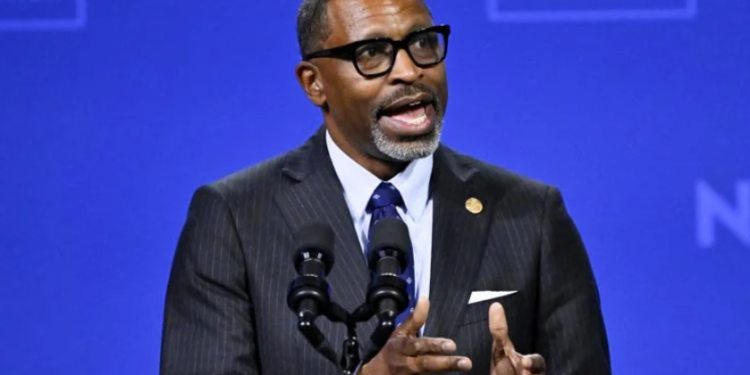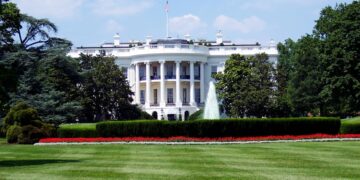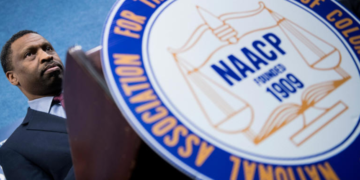Feb 16, 2025 Story by: Editor
WASHINGTON (AP) — The NAACP is encouraging Black Americans to direct their purchasing power toward businesses that continue to uphold diversity, equity, and inclusion (DEI) programs despite conservative opposition. As part of this effort, the nation’s oldest civil rights organization has released a spending guide identifying brands that have either maintained or withdrawn their DEI commitments.
The NAACP emphasizes that DEI initiatives play a crucial role in the economic and social advancement of Black Americans, who are projected to spend nearly $2 trillion on goods and services by 2030, according to the McKinsey Institute for Black Economic Mobility.
“Diversity is better for the bottom line,” NAACP President Derrick Johnson said in an exclusive statement to The Associated Press. “In a global economy, those who reject the multicultural nature of consumerism and business will be left in the past they are living in.”
Rather than calling for a boycott, NAACP economic strategist Keisha Bross clarifies that the initiative promotes a “buy-in” strategy, encouraging consumers of all backgrounds to support companies aligned with their values. The Black Consumer Advisory serves as a resource to guide these purchasing decisions.
The NAACP is actively engaging with executives at companies listed in the advisory for rolling back their DEI policies, including Lowe’s, Target, Walmart, Amazon, Meta, McDonald’s, and Tractor Supply. The organization intends to update its guidance as businesses either reaffirm or retreat from their DEI commitments.
Meanwhile, the advisory commends companies such as Costco, Apple, Ben & Jerry’s, Delta Airlines, e.l.f. Cosmetics, and JPMorgan Chase & Co. for maintaining their previous commitments to diversity and inclusion.
This initiative comes amid increasing political pressure on corporations, government agencies, and other institutions to scale back DEI policies, driven in part by opposition from the Trump administration and Republican-led state governments.
Shortly after taking office, President Donald Trump signed an executive order directing federal agencies to eliminate “illegal preferences and discrimination” in government, while also instructing agencies and the Justice Department to encourage the private sector to do the same.
DEI policies encompass a broad range of initiatives designed to foster fair treatment, unbiased hiring practices, and collaboration among individuals from diverse backgrounds. While the specifics vary, these policies often include anti-discrimination training and measures to promote inclusive work environments. Some organizations employ dedicated DEI officers to implement these initiatives.
The NAACP’s advisory evaluates companies based on their actions, such as eliminating diversity officer roles, discontinuing hiring practices aimed at increasing staff diversity, reducing supplier diversity standards, or cutting investments in Black communities, including support for historically Black colleges and universities (HBCUs).
A study by McKinsey also found that Black Americans are more likely to reside in communities that lack access to essential goods and services provided by major corporations.
Johnson stressed the importance of equipping Black consumers with the necessary information to make informed financial decisions. “If corporations want our dollars, they better be ready to do the right thing,” he stated.
Trump’s executive orders have also sparked legal challenges. In February, a coalition including the mayor of Baltimore and a university professors’ association filed a lawsuit against the Trump administration, arguing that the directives violated civil rights laws.
“In his crusade to erase diversity, equity, inclusion, and accessibility from our country, President Trump cannot usurp Congress’s exclusive power of the purse, nor can he silence those who disagree with him by threatening them with the loss of federal funds and other enforcement actions,” the lawsuit states.
Further litigation regarding DEI policies in the private sector is ongoing. The Federal Communications Commission recently sued Comcast over its DEI policies, while Missouri filed a lawsuit against Starbucks in February. Additionally, companies such as Apple, Berkshire Hathaway, Coca-Cola, IBM, Mastercard, and PepsiCo face shareholder resolutions questioning their DEI initiatives. Source: AP News

















